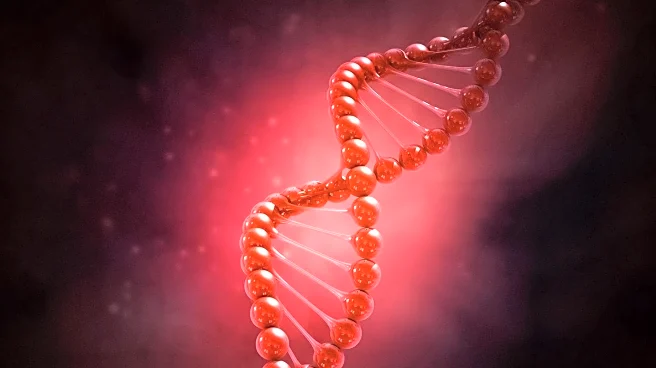What's Happening?
A study has demonstrated the use of circulating tumor DNA (ctDNA) to refine consolidation immunotherapy for patients with limited-stage small cell lung cancer (LS-SCLC). By integrating ctDNA status with radiological
tumor shrinkage, researchers identified high-risk patients who showed significantly improved progression-free survival (PFS) and overall survival (OS) when treated with consolidation immune checkpoint inhibitors (ICI) following concurrent chemoradiotherapy (CCRT). The study involved 144 patients, with ctDNA samples collected at various treatment stages. Results indicated that ctDNA dynamics could predict chemotherapy outcomes and guide treatment decisions, particularly for high-risk patients.
Why It's Important?
The integration of ctDNA analysis into treatment protocols for LS-SCLC represents a major advancement in personalized medicine. By identifying patients who are likely to benefit from consolidation ICI, healthcare providers can tailor treatments to improve outcomes and reduce unnecessary interventions. This approach not only enhances survival rates but also optimizes resource allocation in healthcare settings. The ability to predict treatment efficacy through ctDNA analysis could lead to more precise and effective cancer therapies, potentially transforming the management of LS-SCLC and other cancers.
What's Next?
Further research will focus on validating ctDNA as a predictive biomarker for consolidation ICI across larger patient cohorts. The study's findings may lead to the development of standardized protocols for ctDNA analysis in cancer treatment, enhancing precision in therapeutic decision-making. Additionally, exploring ctDNA's role in other cancer types could expand its application in oncology. As the technology advances, collaboration between researchers, clinicians, and policymakers will be crucial to integrate these findings into clinical practice and improve patient care.
Beyond the Headlines
The use of ctDNA in cancer treatment raises important ethical considerations, particularly regarding patient privacy and data security. As genetic information becomes integral to treatment decisions, ensuring robust safeguards against misuse is essential. The potential for ctDNA to revolutionize cancer care also highlights the need for equitable access to advanced diagnostics and treatments, addressing disparities in healthcare delivery.










